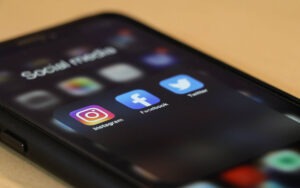December 15, 2014;Sydney Morning Herald
As the hostage crisis in the center of Sydney came to an end, one positive story emerged. A hashtag—#illridewithyou—created to offer protection to Muslim commuters went viral.
It began when, as the hostage news broke, a young Sydney commuter, Rachael Jacobs, posted to Facebook when “the (presumably) Muslim woman sitting next to me on the train silently remove[d] her hijab.” Ms. Jacobs wrote:
“I ran after her at the train station. I said ‘put it back on. I’ll walk with u’. She started to cry and hugged me for about a minute—then walked off alone.”
Sydney TV content editor Tessa Kum (@sirtessa) said she “broke” when she read Ms. Jacob’s story and decided to post the following message on Monday afternoon as Muslim city center office workers faced their commute home:
“If you [regularly] take the #373 bus b/w Coogee/MartinPl, wear religious attire & don’t feel safe alone: I’ll ride with you.”
She then suggested: “Maybe start a hashtag? What’s in #illridewithyou?”
Sign up for our free newsletters
Subscribe to NPQ's newsletters to have our top stories delivered directly to your inbox.
By signing up, you agree to our privacy policy and terms of use, and to receive messages from NPQ and our partners.
The hashtag was picked up by prominent tweeters, politicians, and media personalities, as well as throngs of everyday users offering to ride public transport with Muslims who felt intimidated by anti-Islamic sentiment.
Ms. Jacobs wrote on her personal Facebook page that she was “completely overwhelmed” by the response. “Mine was a very brief encounter—a small gesture to a stranger in response to the sadness that I felt that someone would ever feel unsafe or unwelcome because of their beliefs.”
Ms. Kum told the Sydney Morning Herald:
“I’m not the story and I’m not a hero. Those who started the #illridewithyou movement are incredibly inspiring and anyone who joins it is creating a path to peace for all of us.
“It is hard to feel hope when you feel helpless. #illridewithyou is a small act, but might be important for someone one day.
“My thoughts are with those involved, who will be affected for so long to come, and those uninvolved, who are being blamed none the less.”
The story gives credibility to what Prime Minister Tony Abbott said as the crisis unfolded: “Australia is a peaceful, open and generous society. Nothing should ever change that.”
A coda to the story is that Uber, who have previously come under fire for surge pricing during disasters in the U.S. quickly backed down after some users reported a minimum of $100 being charged by the app as the siege unfolded. Uber quickly said that trips beginning in the CBD would be free for riders and that refunds would be issued those already charged. They added, “Higher rates are still in place to encourage drivers to get into the CBD.” This presumably means Uber will cover the higher fees paid the drivers.
The Sydney crisis ended during the early hours of the morning when armed police stormed the café where the hostages were being held. The gunman and two hostages were killed during the incident. The gunman was identified as Man Haron Monis, 50, a self-styled cleric who had a history history of violence and was facing charges for multiple sexual assaults and being an accessory to a murder.—John Godfrey












